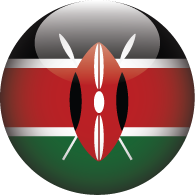How to Become a Professional Poker Player

Since the poker boom hit in 2003, TV-shows such as “High Stakes Poker” have been anything but shy about portraying how glamorous of a life it can be to play poker on a professional level. You can set your own working hours, travel the world and become quite wealthy if you’re skilled enough. If you’ve thought about becoming a pro yourself, this probably aren’t any news to you.
However, as much as the poker life may seem to be a perfect one for someone who loves to gamble and play cards, there’s actually a huge amount of work behind every successful poker player. And even if you’re willing to put in the tremendous effort that’s required, there are no guarantees that you’ll make it as not everyone has what it takes to succeed.
But if it is your dream to become a pro poker player, let us not discourage you. You should definitely give it a go. To help you out, we have created the following article where we are covering all of the necessary steps in playing poker on a professional level – from getting started to advancing in your career. Before we get to this though, let us start off with an introduction of what it actually takes to become a poker pro.
What Does It Take to Become a Professional Poker Player?
If you want to make a living out of poker, there are certain conditions that you need to meet and certain characteristics that you need to have. If you don’t, you need to figure out a way to fulfill and get them, because your future career relies on them. These conditions and characteristics include the following:
- Good starting budget
- Time and patience
- Passion for the game
- Stable psyche
- Willingness to learn
- Great work ethic
A Good Starting Budget
You certainly don’t have to be wealthy to pursue a poker career as the range of monetary limits that you can play at is incredibly wide. A cash game that is played with a big blind of $0.02 doesn’t cost more than $2 for a full buy-in and if you prefer tournaments, these can be bought into for as low as 10 cents.
However, you can’t just settle with a budget that is equivalent to a couple of buy-ins. You are going to need much more than that. So even if you’re playing at the lowest stakes, you will need to invest at least $30 – $200. If you’re going to play a bit higher, which most people probably would like to, then you’ll need to invest a lot more.
We’ll get back to this topic and cover it more thoroughly later in the article.
Time and Patience
If you aren’t already well-familiar with the game, you certainly won’t become a winning poker player overnight. It takes practice – a ton of practice – and a ton of time. You need to review your mistakes and learn from them; dig deep into the theoretical part of the game; and constantly analyze your gameplay.
In other words, if you want to become a poker pro, you need to be prepared to set aside a lot of time and have a lot of patience as there are plenty of things that you need to learn about.
Passion for the Game
It’s not only difficult to become come good at something that you aren’t passionate about, but poker is one of those things that you really have to have a dying passion for to be able to work with. Simply because it’s an incredibly monotonous job. If you don’t love playing cards, there’s not a chance in hell that you’ll be able to stand the grind that a poker pro faces on a daily basis.
A Stable Psyche
Poker is a game that will test you a lot. No matter how skilled you are and no matter how much money you are expected to make based on that skill, there is luck involved in the game. You will regularly experience situations where you’re up against a player with the best hand just to be drawn out. Not only that, but it is inevitable to face longer downswings where this seems to be happening all the time.
This will not only hurt your bankroll, but if you’re psyche isn’t strong enough, it will hurt you as well. Many players fail to become poker pros as they get very anxious or angry about draw outs and downswings, which is hurting their mental well-being. Not to mention their ability to keep playing well.
Willingness to Learn
There are some things that can be mastered and some things that can’t. Poker belongs to the latter category as the game is an ever-changing one. To become a poker pro, you need that drive of constantly aiming to become better. You have a ton of things to learn to begin with, but once these basics are learnt, the fine-tuning never ends as players constantly change. All poker pros are putting hours into studying every week to make sure they’re ahead of the competition.
Great Work Ethic
Playing poker professionally is probably a dream come true to many players, but don’t think that it’s an easy life. Staying on top of your game and grinding for several hours every day to make an income is not something that anyone can do. You need the right mind-set and good discipline to put the hours in. There’s no room for slacking.
10 Steps to Becoming a Poker Pro
Now that we have touched on the subject of what it takes to become a professional poker player, let us get to the good part – the step by step guide explaining how you get started and advance.
1. Choose the Game You Want to Excel In
As you might have witnessed, the best of the best in poker can play anything from cash games to sit ‘n’ goes and multi-table tournaments very well. However, everyone’s got a particular game that they’re especially good at and comfortable with.
As a beginner, you shouldn’t even be thinking about trying to become good in more than one type of game – that’s a fatal mistake. Poker is difficult as it is and you need to channel all of your energy into either cash games, sit ‘n’ goes or multi-table tournaments.
Which one do you choose? The one that you enjoy the most! The first step in becoming a poker pro is trying out different poker types to see which one is best suited for you. It’s important that you like what you’re doing and can picture yourself playing a certain type of game over and over again.
You don’t have to worry about the competition as there is money to be made in any type of poker. If your heart is beating for Omaha and cash games then focus on Omaha and cash games. If it’s Texas Hold’em and multi-table tournaments then put all of your effort on that.
All types of poker have their own pros and cons and by trying out different variants and learning some basic theory you will get a good feeling for them. For instance, multi-table tournaments are very time demanding as they can take half a day to finish with no more than 5-minute breaks every now and then. Cash games, on the other hand, are very flexible as you can join a table and go as you like.
2. Set Aside a Budget and Choose Your Limits (Money Management)
Money management is a crucial part to any professional poker player. If you play too low of a limit you may not be making as much money as you want, but if you play too high in relation to your bankroll, you could lose it all and you certainly don’t want that to happen. There are many stories out there about players going broke because they played the wrong limits.
Even the best poker pros have downswings where they are losing for weeks and possibly months – it’s part of the game. As a new player, the risk of losing will obviously be a lot higher than that of an established professional. This means that you need a good-sized budget in relation to the limit you are playing. Simply to survive the losing streaks that you may and eventually will encounter.
Our recommendations are that you follow the below bankroll requirements:
- Multi-table tournaments: 300 buy-ins
- Single-table tournaments: 120 buy-ins
- Heads up sit ‘n’ goes: 80 buy-ins
- No limit cash games: 100 buy-ins
This means that if you would like to begin your career by playing no limit cash games where the small and big blind is $0.1 and $0.25, you would require a total budget of $2,500 (since you buy-in for $25). If you’re going for multi-table tournaments that cost $5, you would require a total budget of $1,500.
You should start at the limit you feel comfortable with. The competition will be easier the lower the limit is, but you may not take the game seriously if you’re only buying in to a cash game for $2 – as an example. If there’s not enough money at stake, you may not get motivated enough to perform at your best.
Regardless of the limit you choose, you must be prepared to move down if you’re required to. If you find yourself losing too much, you need to protect your bankroll by going down a limit. Similarly, if you get to a point where you’re beating the game and earning money, you may want to give the higher limits a shot.
Like any type of gambling, it’s very important that the money you invest into your poker career is separated from the rest of your economy. Poker money is poker money and even if you’re aiming to win, your everyday-life should never be affected by losing.
3. Do Your Research to Understand All Elements in Poker
On the surface poker may seem like a simple game, but underneath it there’s a great deal of math and complexity. Depending on the type of game you choose to play you need to learn about things such as:
- How to calculate the odds of hitting a winning hand when you think you are behind
- How to calculate pot odds which are used to determine if it’s worth drawing or not
- How to calculate implied odds which are also used to determine if it’s worth drawing
- Different playstyles such as tight aggressive, tight passive, loose aggressive and loose passive
- How to identify playstyles and how to adapt your game to them
- Reading your opponent to be able to put him on a certain range of hands
- Understanding the image you are giving to other players depending on how you play
- Using the image you think that players have on you against them
- When it is a good opportunity to bluff and when it isn’t
- The importance of positions and how to play different positions
- How the game changes when you’re on the bubble (in tournaments)
- How to play short-stacked or against a player that is short-stacked
These days it’s easier than ever to get the above knowledge as Google and YouTube has the answer to everything. However, we would highly suggest investing in a couple of well-written poker books.
4. Put Your Opponent on a Range of Hands
We’ve already mentioned this above, but this is such an important element of poker that we felt like it deserved its own step. Putting your opponent on a range of hands is not only one of the most important things in the gameplay of poker, but it is also where most players miserably fail. They focus too much on their own hand and rely on guessing what their opponent may have. It should be the other way around, because if you know what the other players may be holding, your own hand isn’t very important.
You may have heard this saying before, but it’s a good one:
“you don’t play your cards, you play your opponent”
That’s how poker is played. There is of course some value in your own cards too. However, at the tables it is crucial that you follow your opponent’s decision on every street and analyze it. For instance:
- What range of hands could my opponent have called my raise on pre-flop with?
- What range of hands could my opponent have called my bet on the flop with?
- What range of hands would my opponent raise my bet on the turn with?
When you make this type of analyzing a habit, you will limit down all of your opponents to just a couple of possible hands and know exactly where you’re standing in each game round. Some people play very unpredictably though, which makes it hard putting them on a good range. These players can be difficult to profit from. However, with many of them you can tell exactly how they’re playing once you’ve spent some time on the table with them. If you pay attention that is.
So, if you want to become a poker pro, you should never rush to make a decision. Take your time at the table and think things through.
5. Practice, Practice and Practice Some More
Poker is a very dynamic game that doesn’t get old. The rules may remain the same, but the game is constantly changing as players are getting better and better. You can never stop and think that you know it all because you don’t. Even if you are winning at a certain moment in time, you need to keep improving because you may not beat the competition in the future.
When the poker boom hit in 2003, the vast majority of players had no idea what they were doing. These days, however, most of them have a basic knowledge about the game. Even if they aren’t putting this knowledge into full practice like a professional, they known. It’s harder to profit now than it once was.
This is why you can’t get enough of practice. And when we’re saying practice, we’re not just talking about playing the game. We’re talking about analyzing your own and your opponents’ gameplay. To become a professional poker player, you should spend about 20% of the time that you’re playing at the tables on theory. Now, this brings us to the next topic.
6. Get a Coach or Join a Community to Discuss Hands
One way of analyzing your own gameplay is to save the history of each and every hand which you aren’t sure about how you played. Discussing this with yourself is certainly a step in the right direction, but it’s a million times better to discuss it with other poker enthusiasts. Getting other people’s opinion about a hand can be incredibly valuable.
To discuss your hands, you can either hire a professional poker coach that will help you out or join community forums such as two plus two. The latter option is free and will ensure that you get an opinion from many different players. However, getting a coach has its upsides as you’re able to hire someone that’s a proven professional. You can also record videos of your sessions which can be talked about.
- Invest in a Poker Program or Two
These days, there probably isn’t a single professional online poker player who isn’t using a software to aid them in their career. Poker programs come in a bunch of different variations and they are incredibly helpful tools. While different software can do different things, the most popular ones gather and save information about you as well as all players that are sitting at a table. Some of this information include:
- Voluntarily put money into the pot (%)
- Pre-flop raise (%)
- Three bet (%)
- Continuation bet (%)
- Aggression factor
- Money lost or won
- Number of hands played against the opponent
This information is not only displayed in the program itself, but it will be displayed in real time at the table you are playing on. In other words, the more that you’re playing against the same opponent, the more accurate information you will have on him. This can be a tremendous help to your game – especially if you’re multi-tasking by playing several tables at once.
There are programs too that can track how an opponent is specifically playing against you, which is great if you often find yourself going up against the same player. Then there are also programs that will do the math for you, such as calculating pot odds.
While we won’t be recommending any software in particular, this is definitely something that you need to look into if you want to become a professional poker player.
8. Never Get Emotional About a Hand
Speaking from experience, this is easier said than done. If you’re on a losing streak and your aces get crushed by kings when you’re all in preflop, your nerves will certainly be tested. However, nothing good will come from getting upset – quite the contrary.
If you let your emotions get to you this will most certainly have a negative impact on your gameplay and before you know it, you’re in a downwards spiral. You’re mad because you’re losing and then you’re losing because you’re mad.
A poker pro has to be able to handle his or her emotions as losing streaks and bad luck is something that everyone has to deal with at some point. If you get good, there will be many wonderful days, but no matter how skilled you become there will always be low points in your career. This is inevitable.
Making a living from poker is serious, but you can’t take your losses too seriously. Don’t chase them either as it’s pointless. You can’t always end a day in profit or even a month. Just accept the game for what it is and know that if you’re playing consistently well you will be winning in the long run.
9. Take Care of Your Mental Health
Poker is all about the mind and if you aren’t taking care of your brain, you aren’t taking care of your game. If your well-being and concentration isn’t on top, you can’t expect to perform like a pro. This is why taking care of yourself is just as important as being knowledgeable. This includes:
- Making sure that you get enough sleep every night
- Exercising on a regular basis, preferably outside to get some fresh air
- Eating healthy food that’s good for your body and mind
We highly recommend having a structured life where things are scheduled. You have your daily hours of poker grinding; your meals (which you may have to prepare) and your work-outs.
10. Be in the Mood to Play
This goes hand in hand with taking care of your mental health, because if you aren’t, chances are that you aren’t going to be in the mood to play. However, even if you do take care of yourself, you may not always feel like grinding for several hours. Or it may be that you’re starting off a session with a positive mind-set, but then gradually get bored and begin multi-tasking by watching streams or reading on the internet.
If you aren’t in the mood, for whatever reason it is, you shouldn’t play because this will probably have a negative impact on your game. However, if you want to become a professional poker player there’s no escaping the fact that you have to play a lot. This means that getting and staying in the mood will be crucial to your career. Therefore, before starting a session, it’s a good idea to mentally prepare yourself;
“I’m going to have to a blast and solely focus on the game to play the best of my ability”
Getting ready for a session, it is also recommended that you get rid of all things that could possibly distract you. This means that if you don’t already have a quiet place to play your poker, you want to set one up. The last thing you need is family or friends to be around and hamper with your concentration.
As important as it is getting in the mood to get the hours in, you must also know when it’s time to quit. If you’re getting emotional about a hand, becoming bored and finding it hard to keep track of your opponents, it’s probably time to take a break or call it a day. There’s no point playing in poor conditions as this will only cost you money.
Biggest Mistakes a Person Wanting to Become a Poker Pro Can Make
To do a quick recap of some of the things that we’ve been teaching you above, we have listed crucial mistakes that players who want to make a living out of their poker can make:
- Playing too many different types of poker games
- Focusing more on the own hand than the opponents’
- Not investing in a good poker software
- Letting emotions affect the gameplay
- Playing limits that are too high compared to the bankroll
- Not analyzing one’s game on a regular basis
- Playing without focusing on what’s happening
How Long Does It Take to Become a Professional Poker Player?
How long is a rope? You must understand that every individual is different. How long it takes to become a pro depends on many different factors such as:
- The time and dedication put into the game
- How quick of a learner you are
- The experience you already have
Some people are naturals and understand the game in such a way that they become profitable at once, while other people never become pros no matter how hard they try.
If you got what it takes (see the things we mentioned in the beginning of the article) and make a wholehearted effort into making a living out of poker, about 6 months is probably a good guess. Don’t take this as a golden rule though. It may be longer and it may be shorter.
How Much Money Can I Make as a Poker Pro?
This is a tough one to answer as it depends on the limit you are playing, how much you play, what your win-rate is and if you’re playing multiple tables or not. However, if you play 25,000 cash game hands every month as a consistently winning player, you could expect the following profits:
- NL2 ($0.01 / $0.02) – $75 per month
- NL5 ($0.02 / $0.05) – $250 per month
- NL10 ($0.05 / $0.1) – $400 per month
- NL25 ($0.1 / $0.25) – $750 per month
- NL50 ($0.2 / $0.5) – $1,250 per month
- NL100 ($0.5 / $1) – $2,000 per month
Do note that 25,000 cash game hands are equal to about 11 hours of grinding every day if you’re only playing at a single table. Should you multi-task four tables, it would be a daily grind of 2½ – 3 hours. As you can see, the expected profit is approximately getting doubled with every increase in table limit.
When it comes to multi-table tournaments the variance is a lot higher than cash games as getting deep into a tournament is what pays. This means that the potential income for a particular month is much greater. A first-place finish in a $50 tournament could easily earn you more than $10k. However, playing tournaments you could also experience several months where you aren’t making any profit at all.
At the end of the day, it is probably just as profitable to play cash games as it is playing multi and single table tournaments. So, to get a good idea of the money that you can make, just refer to the above list.
Best Casinos in US
400% up to $2,000 with ree Spins
MYB Casino offering a live dealer casino and a lot of (deposit) bonuses to make sure most players feel valued at this online casino.
250% Bonus up to $2,550
Desert Nights Casino is part of the group of online casinos owned and operated by Deckmedia which in terms of their slots library is also very promising.
Deposit $25 and play with $100
Slots Capital is certainly set up to make slots players feel as welcome as possible when enjoying their favourite games.
100% Bonus up to $100 on first 8 deposits
With a wide range of bonuses, Miami Club is a welcoming website giving players a platform to max out the benefits.
100% Bonus up to $8,888 +350 free spins on first 6 deposits
If you’re a slots fanatic or enjoy online table games, you should definitely give Uptown Aces Casino a good try.
100% Bonus up to $7,777 +300 Free Spins
This casino offers a reasonable choice of real money slot machines and table games, including both old classics and new releases.
No deposit bonus
Platinum Reels adds more games each month, so there is always something new and exciting for everyone.
No deposit bonus
Diamond reels is the newest addition to an online casino group with over 10 years of experience and strives to produce the best in online casino entertainment.
225% Pokies Bonus +50 Free Spins on Cash Bandits 2
Aussi Play is one of the latest launches in the world of online casinos, with many promotions and high bonuses.
Relevant news
How Can I Identify a Reliable Online Casino?
When navigating the vast realm of online casinos, you may come across enticing offers that…
How Can I Withdraw Money From My Casino Winnings?
When it comes to cashing out your casino winnings, think of it as navigating a…
What Are the Best Tactics to Win in Casino Games?
When it comes to navigating the labyrinth of casino games, think of yourself as a…
How to Play Craps?
Craps, often seen as a complex and daunting game, can actually be quite straightforward once…
What Is the Best Strategy for Playing Blackjack?
When it comes to playing blackjack, navigating the game is akin to peeling back the…

Game reviews with RTP in focus
If there's one thing we enjoy more than thrilling slot games, it's slot games that…

















